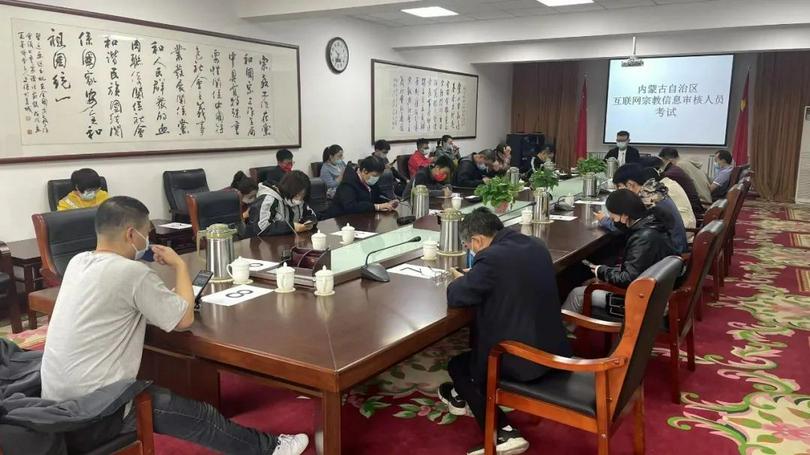As the "Administrative Measures for the Internet Religious Information Services" came into effect on March 1st, various provinces organized for the relevant personnel to study and take the qualification examination for Internet religious information examiners, so as to obtain the license to share religious content on the Internet.
While it is said that two churches in Zhejiang and Fujian and a seminary in Guangzhou have obtained the license through examination and application, most churches and Bible schools are in the process.
The Religious Affairs Bureau of Inner Mongolia Autonomous Region held the first qualification examination for Internet religious information examiners. Recently, the Religious Affairs Bureau of Inner Mongolia Autonomous Region organized five religious groups and some religious activity places in Hohhot to apply for the examination of the religious information examiners by considering the current pandemic prevention and control requirements. A total of 29 people have passed this exam and are qualified as Internet religious information examiners.
According to the requirements of the Shandong National Religious Affairs Committee, Weifang City, Shandong Province, established a working mechanism, timely communicated with the municipal network security and public security departments, and initially established a coordination mechanism for implementing the requirements of the Measures. For example, Qingzhou City established a joint meeting with the participation of network security, publicity, public security and other departments, and formulated a network security management system for religious activities. The city organized the qualified religious groups and places to sign up for the provincial training course for examiners of Internet religious information service units, and participate in the training as required. On April 29th, the leaders of the departments took the lead, and all government officials actively participated in the online training.
Wuwei, Gansu Province, emphasized the second key point of Internet religious information service management to carry out a thorough investigation. Since the implementation of the Measures, the city has registered the websites, WeChat official accounts and short video accounts (Kuaishou, Tik Tok) opened in the name of religious groups and places for religious activities, and implemented unified supervision, laying a solid foundation for the standardized management of Internet religious information services.
The legal organization or unincorporated organization that intends to engage in Internet religious information service in Gansu Province shall apply to the Ethnic and Religious Affairs Bureau of Gansu, and the permitted applicants will be issued the License for Internet Religious Information Service. Those who have been engaged in Internet religious information services before the implementation of the Measures shall go through the relevant formalities in accordance with the regulations before September 1, 2022. The first examination is scheduled for July.
Both Qinghai and Guangxi have proposed that those who have been engaged in Internet religious information services before the implementation of the Measures shall go through the relevant formalities within 6 months from the date of implementation of the Measures.
Qinghai Province proposed that the names used in Internet religious information services should be the same as the names of the applicants, and should not use names of religious groups, religious colleges, and places of religious activities, or contain any content prohibited by laws and administrative regulations.
- Translated by Oliver Zuo












